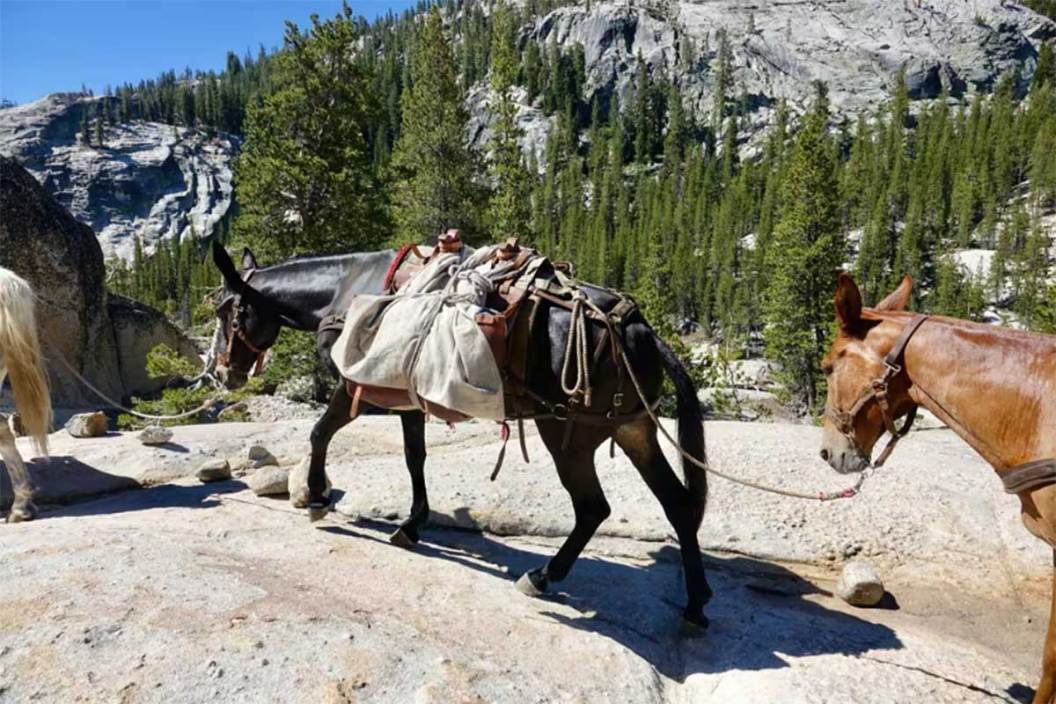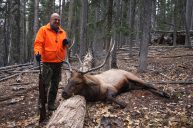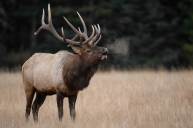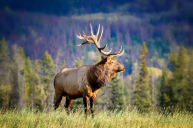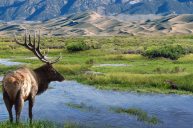If you've ever bagged an elk, you know how heavy your pack can be once it comes time to bring your quarters home. The first time I went on an elk hunt, my buddy got his first bull during September's archery season in Colorado. We were five miles deep into a wilderness area, and it took two trips to get all the meat out, totaling 20 miles on foot after it was all said and done. Ten of those miles were hiked with 75-pound packs. That was the last time I ever shot an elk that far from my cooler. Man, I wish we'd had horses that day.
Fortunately, if you have access to horses, packing out an elk becomes a lot easier. Horses are a legal method of travel within designated wilderness areas. With the right gear and the right horses, they can pack out your elk for you far easier than you could on your own. Whether you're hunting with an outfitter or doing a DIY hunt with your buddies, horses can make all the difference when it comes to the full big game hunting experience. Here's some information on how to pack out an elk with horses.
Plan Your Pack-Out Early
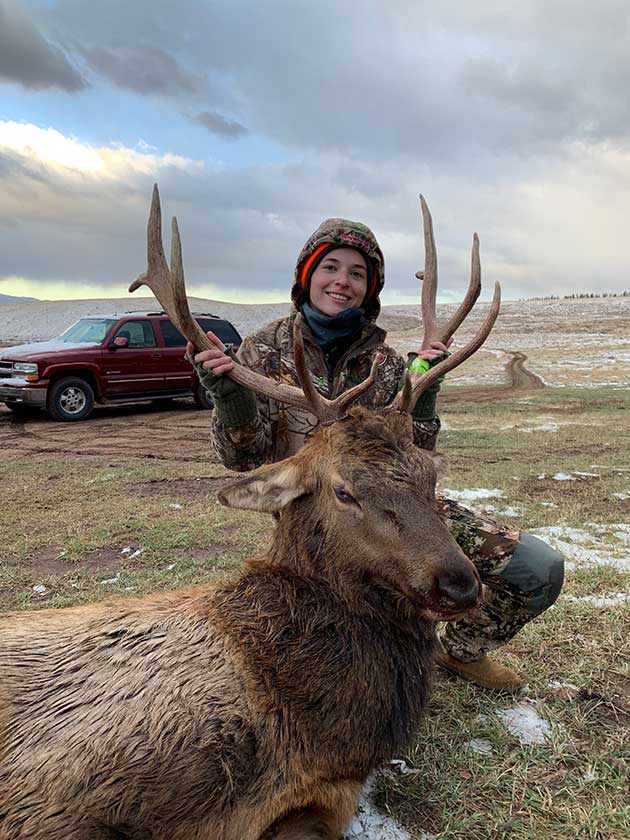
Gabriela Zaldumbide
It only takes one moment for an elk hunt to come to an end. If you didn't alert your buddy who owns horses ahead of your hunt, they may be unavailable to help you pack out your elk meat when the time comes. Pack horses are in high demand come hunting season. It's helpful and considerate to plan your pack-out strategy ahead of time and communicate it to the folks who volunteered to lend you their horses.
Hunters also get brownie points when they already know how to be considerate around horses. Horses get the right of way on all trails, so it's important to step off the trail and out of the way if a horse is coming toward you. It's also good practice to say hello to the rider in advance so the horse knows you're there and won't get spooked when it walks past you. When your buddy rolls in with his pack string of ponies, it'll be easier to pack out your elk if the horses are calm and behaving.
How many horses do you need to pack out an elk?
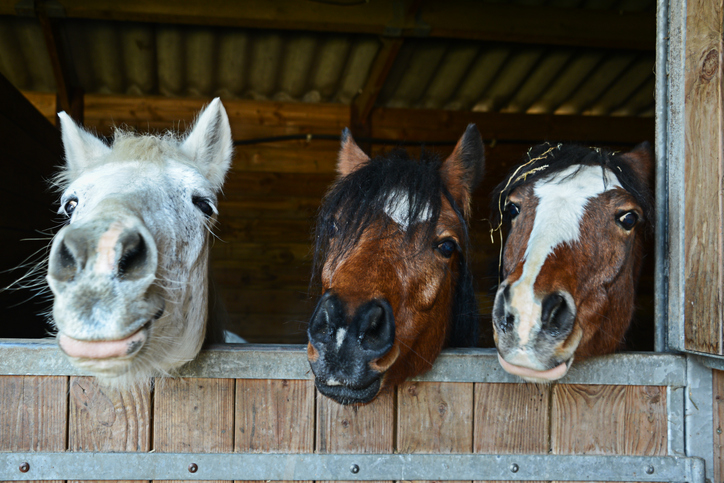
Horses can comfortably carry about 20 percent of their body weight. Generally, this is between 200-250 pounds, depending on the size of the horse. This is critical to keep in mind when packing out elk meat. The average bull elk yields about 220 pounds of harvestable meat. Cow elk generally yield closer to 170. One small horse could likely pack out a cow elk, and one large horse could probably carry an entire bull's worth of meat. However, it's easier on your horses if you spread out this weight between two of them. Additionally, if you're planning on packing your hunting and camping gear onto your horse, too, you'll definitely need more than one pack horse.
You also can't ride the horse you're packing. For example, if you shoot a small cow elk, you can likely get away with leading one pack horse via a lead rope loaded down with both your elk and your hunting gear. However, if you want to ride out, you'll need a second horse rigged up with a backcountry-friendly saddle and headstall setup. This way, you can ride out of the backcountry while ponying your pack horse behind you. If you're hunting with friends, you may need a horse for each person to ride as well as multiple pack horses to pack out all your gear and elk meat. This is where a pack string comes in; typically, elk hunting outfitters can provide this service for you.
Gear Needed to Pack Out an Elk on a Horse
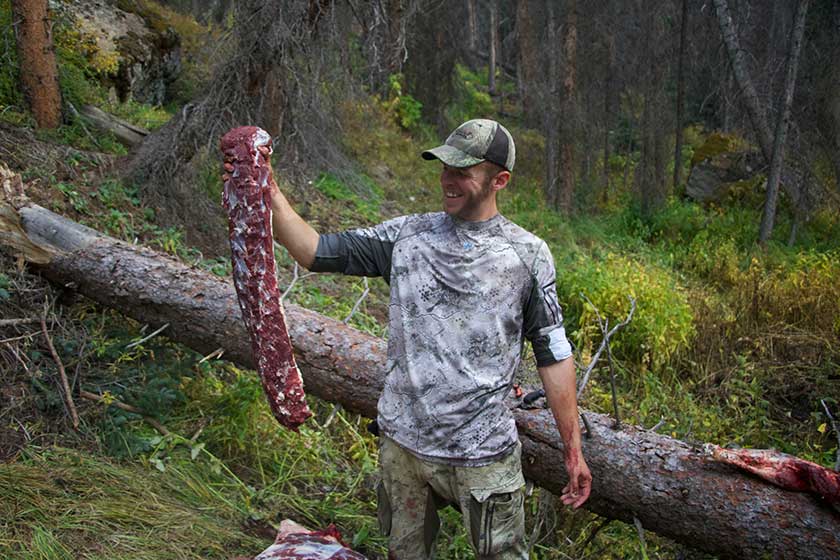
Gabriela Zaldumbide
Pack saddles are essential for packing out elk meat on horseback. Paired with a thick wool saddle pad, pack saddles can be loaded down with panniers or even metal racks. If you're using panniers, elk quarters and hunting gear can be loaded onto each side of your horse. Be careful to evenly distribute the weight of your meat and gear on both sides. Most folks use a ratchet strap or other tether to tie down the skull to the center of the pack saddle. Your pack horse will also need a halter and a lead rope. This allows the horse to remain under your control while you use it for work. You can also loop (not tie) the lead rope to your saddle horn to make for easier ponying if you're riding out, too.
As I mentioned previously, it's important to be considerate of horses while using them to pack out elk meat. Not just any horse can be a pack horse. Whether it's your horse or someone else's, it's likely that you or someone else dumped a ton of time and money into training that horse to be packable. Pack horses need to load into a trailer, be in extremely good physical condition, wear quality horseshoes, work well as a team with other horses, listen to their handler, wear a pack saddle with panniers, and not be alarmed by the scent of dead elk. If you've found a horse that can do all these things confidently and reliably, you're in business!
Meat Care
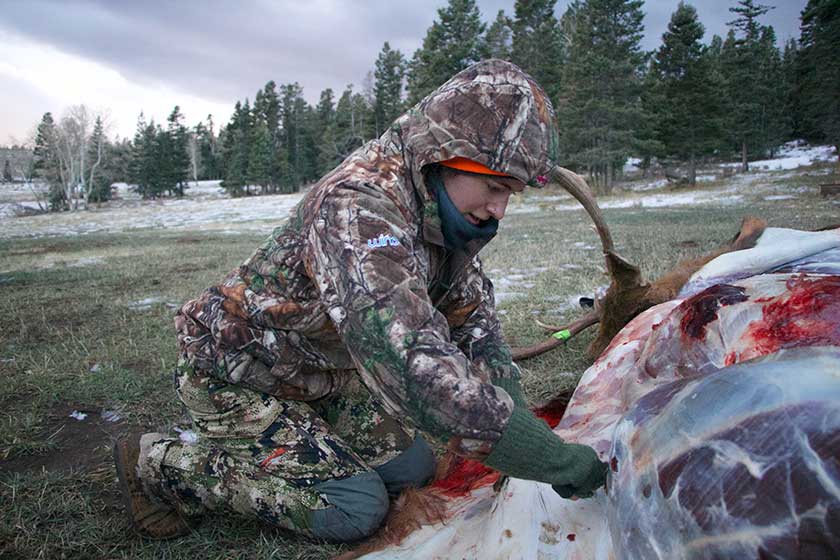
Gabriela Zaldumbide
Even though utilizing pack horses will get your elk meat to your cooler faster, meat care is something that should be on the top of your mind. Prior to being loaded into a pannier, your elk quarters should be stowed in game bags so they're protected against bugs, sticks, dirt, and other debris that's bound to get inside those panniers. It may also be good to line your panniers with trash bags or another protective surface so they don't get stained with elk blood (unless they already are).
If you're packing out elk meat on horseback in grizzly country, be especially bear-aware and know that any large predators could target your pack horse. The slow pony at the end of the line who's walking out of sight or the hobbled horse who's grazing while you eat lunch could be a target that you must be ready to protect.
After all this hard work, don't forget to thank your horse-owning buddy with a couple of cuts of fresh elk meat or an offer to do the same for them sometime. It's a small price to pay for their donated time, skills, and horsepower.
